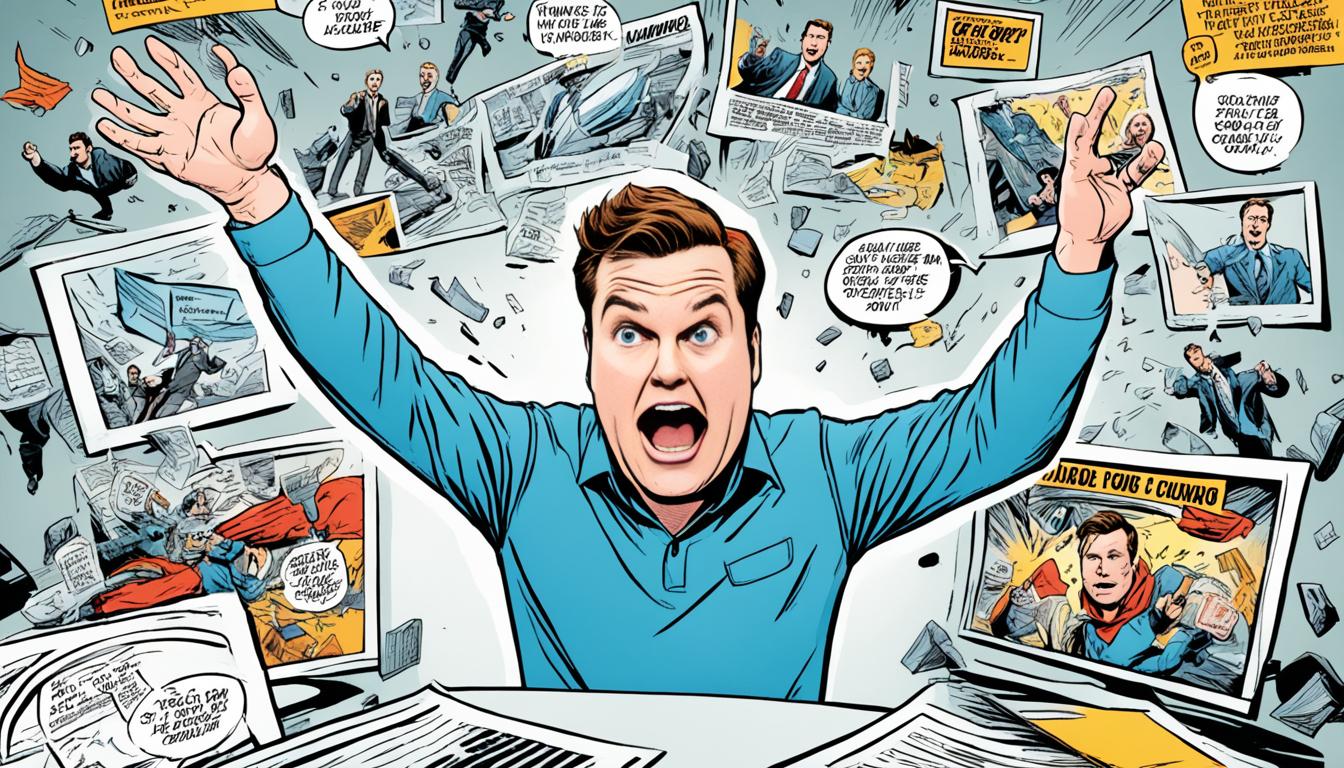Sending breakup texts while overwhelmed with emotions can lead to deep regret. These messages, filled with longing or guilt, often stem from impulsive reactions rather than reflecting your true feelings. The whirlwind of emotions can cloud judgment, causing unintended hurt and lingering regrets. Clarity in communication is important to avoid misunderstandings and aid closure. It's vital to handle emotions thoughtfully, prioritize healing, and learn from mistakes for personal growth. Seeking healthy outlets for closure, embracing lessons, and understanding the complexities of expressing emotions during breakups are all part of the healing process.
Key Takeaways
- Reflect on emotional impulsivity to avoid regret.
- Consider consequences before sending hurtful messages.
- Seek closure through healthy outlets post breakup.
- Learn from mistakes in communication for personal growth.
- Acknowledge the impact of sent texts on healing process.
Regretful Breakup Texts
Sending regretful breakup texts often results from acting on emotional impulses without considering the consequences. It's normal to feel overwhelmed during a breakup, but hitting send on a message fueled by intense emotions can lead to unintended hurt and regret.
These texts, born out of emotional impulsivity, might seem like a quick fix in the moment, but they often result in lingering guilt and embarrassment. They can muddy the waters, leaving both you and the recipient confused and wounded.
However, amidst the pain, there lies an opportunity for personal growth. Reflecting on the reasons behind those regretful breakup texts can be a stepping stone towards understanding your emotions better and improving how you communicate in future relationships.
Taking the time to analyze your actions and emotions can help you navigate breakups with more clarity and compassion, fostering healthier relationships in the long run. Remember, these missteps can be learning experiences that contribute to your growth and emotional maturity.
Emotional Breakup Messages

Hey there, we've all been there – the whirlwind of emotions during a breakup can be intense. Sometimes those feelings spill over into messages that we later wish we hadn't sent.
It's important to remember that impulsive reactions in the heat of the moment mightn't truly reflect how you feel in the long run.
Regrettable Emotional Outbursts
Regrettable emotional outbursts in breakup texts often stem from a surge of intense feelings that can lead to misunderstandings and hurt feelings. When emotions run high, it's easy to let impulsive emotional breakup messages take over. In the heat of the moment, you might feel like pouring out your heart, but remember, those words can have lasting effects.
Sending emotional breakup messages doesn't just impact the other person; it reflects on your emotional state too. Unresolved emotions and a lack of control can fuel these outbursts, making the breakup experience more painful for both parties. It's important to take a step back and think before hitting send.
While it may be tempting to express everything you're feeling in that moment, impulsive emotional breakup texts can worsen the situation and prolong the healing process. Take a moment to breathe, gather your thoughts, and consider the long-term effects of your words.
It's okay to feel overwhelmed, but handling those emotions with care can lead to a more peaceful resolution.
Impact of Impulsive Reactions
When reacting impulsively to a breakup, emotional messages can have lasting consequences on both parties involved. Sending texts in the heat of the moment can lead to regrets and further emotional turmoil. These impulsive reactions often do not accurately represent your true feelings, causing unnecessary hurt and potential damage to future communication with your ex. Taking a moment to process your emotions before responding can prevent escalating the situation and protect both your well-being and that of your former partner.
| Impact of Impulsive Reactions | |
|---|---|
| Consequences | Can lead to regrets and worsen emotional aftermath |
| Communication | May damage future interactions with your ex |
| Reflection | Messages might not reflect true feelings in a calmer state |
| Prevention | Taking time to process emotions can prevent unnecessary hurt |
Painful Texts to Exes
Sending painful texts to your exes can leave a lasting impact on both parties involved. When emotions are running high, it's important to type out hurtful words without fully considering the consequences.
Red Flags in communication can include insults, blame, or unnecessary drama, making it challenging to heal and move forward. Remember, it's vital to approach such situations with empathy and respect, even if the relationship has ended.
While it may be tempting to lash out in the heat of the moment, try to take a step back and consider how your words will affect the other person. Keep in mind that hurtful breakup texts can hinder the closure process for both of you.
If your goal is to remain friends or at least feel comfortable in the future, it's crucial to handle difficult conversations with care and maturity. Reflect on your actions and use them as a learning opportunity to improve your communication skills and emotional intelligence.
Messages Filled With Longing

Filled with deep yearning and emotional vulnerability, messages of longing often express a strong desire to reconcile or reconnect with an ex. It's normal to feel a tug at your heartstrings and a longing for what once was in a past relationship. These messages may overflow with emotions like regret, love, and a wish to make things right.
Sometimes, you might find yourself typing out heartfelt apologies or pleading for another chance. It's okay to miss someone and wish things were different, but remember, sending messages filled with longing can stir up more emotions and mightn't always lead to the outcome you hope for.
During moments of weakness or nostalgia after a breakup, it's easy to get caught up in these feelings. Take a moment to reflect on what you truly want and if reaching out is the best choice for you and your well-being. Sometimes, it's essential to prioritize your own healing and growth before seeking to reconnect with someone from your past.
Guilt-Ridden Breakup Texts

Guilt can heavily influence the content and tone of breakup texts, often leading to messages filled with remorse and self-blame. When you're grappling with guilt over ending a relationship, it's crucial to navigate your emotions carefully.
Here are some key things to keep in mind as you let your feelings guide your breakup text:
- Acknowledge your role: Make sure to take responsibility for your actions and acknowledge any part you played in the relationship's outcome.
- Express genuine remorse: Let the other person know how sorry you're for the pain caused by the breakup.
- Avoid placing blame: Ensure that your text focuses on your feelings rather than pointing fingers or assigning fault.
- Offer support: Make sure to express your willingness to help the other person through this difficult time.
- Clearly state your intention to go your separate ways: Ensure that the message clearly communicates the finality of the decision to end the relationship.
Hurtful Messages to Regret

When ending a relationship, it's important to be mindful of the potential impact of hurtful messages that may later be regretted. Sending hurtful texts can deeply wound the other person's feelings and self-worth. It's essential to feel anger or frustration during a breakup, but expressing these emotions in a hurtful way can lead to long-term guilt and remorse. Remember, words have power, even in the digital world.
If you've said something hurtful in the heat of the moment, it's vital to reflect on the impact of your words. Relationships require effort and understanding, and hurtful messages can damage the foundation you've built. Instead of lashing out, consider communicating calmly and respectfully. Sometimes, a thoughtful conversation can make all the difference in finding closure or even potentially working things out.
In the end, aim to avoid sending messages you may regret later. Building a healthy relationship is a journey that requires mutual respect and kindness. Think about how you'd feel if the situation were reversed, and aim for communication that fosters understanding and growth rather than pain and regret.
Confusing Breakup Communications

Sending unclear breakup messages can lead to misunderstandings and hurt feelings between both parties. When it comes to confusing breakup communications, it's important to aim for clarity and honesty to guarantee a respectful end to things.
Here are some key points to think about:
- Clarity is vital in breakup messages to avoid misinterpretation.
- Mixed signals can prolong the healing process for both individuals.
- Unclear breakup texts may leave room for false hope, causing more pain in the long run.
- Direct and honest communication can help both parties move forward with understanding.
- Remember that clear communication isn't only respectful but also allows for closure and healing.
Unresolved Feelings in Texts

Hey there, we've all been there with those lingering regrets in messages, where emotions can often get misunderstood.
It's tough when your feelings remain unresolved in those texts, isn't it?
Lingering Regrets in Messages
Amidst lingering regrets in messages lies the haunting presence of unresolved feelings and desires. When you look back at the texts you sent post-breakup, a wave of emotions may flood over you, reminding you of the real connection you once shared.
Here are some key points to ponder:
- Reflect on the emotional distress that led you to send those messages.
- Understand that unresolved feelings can cloud your judgment in the heat of the moment.
- Acknowledge that sending messages out of desperation may not lead to the closure you seek.
- Remember that unsent texts can weigh heavily on your mind, hindering your healing process.
- Consider how revisiting past messages can serve as a reminder of the pain and vulnerability you experienced during the breakup.
Take a moment to reflect on these points, and know that it's okay to feel regret. Healing takes time, and acknowledging your emotions is an essential step towards moving forward.
Misinterpreted Emotions Expressed
Misinterpreted emotions expressed in breakup texts often lead to confusion and misunderstandings between both parties involved. It's tough to navigate the delicate balance of expressing your feelings honestly while ensuring the other person understands your true intentions.
Sometimes, in the heat of the moment, it's challenging to know what to say or how to convey your emotions accurately. You might still care deeply for the person you're breaking up with, and that can make it even harder to express yourself clearly.
Reflect on the time you spent together and try to communicate your feelings in a way that's honest yet considerate of the other person's emotions. It's okay to struggle with finding the right words, but take a moment to think about how your message might be perceived.
Healing From Sent Texts

Healing from sent texts after a breakup can be a challenging but necessary process for emotional growth and moving forward. It's essential to navigate this journey with care and self-compassion.
Here are some tips to help you along the way:
- Take time to reflect on the breakup texts you sent and understand the impact they had on both you and your ex-partner.
- Seek closure through healthy outlets like journaling or talking to a trusted friend, rather than dwelling on the texts themselves.
- Embrace the lessons learned from the breakup texts to fuel your personal growth and future relationships.
- Accept that healing takes time and it's okay to feel a range of emotions as you work through the aftermath.
- Remember that mistakes in communication are part of being human; use them as stepping stones toward better connections in the future.
Frequently Asked Questions
What Is the Most Touching Breakup Message?
When crafting a touching breakup message, it's crucial to speak from the heart. Express gratitude for the time shared, highlighting positive moments.
Acknowledge personal growth and the impact of the relationship. Close with well-wishes for the future and a sense of closure.
What Texts to Send Instead of Ghosting?
When ending a relationship, remember that sending a gentle breakup text is kinder than ghosting. Being clear and direct in your message can help both of you move forward with understanding.
Express gratitude for the time shared, but don't suggest staying friends if you don't mean it. Find the balance between honesty and kindness in your text to respectfully end things.
It's tough, but being upfront is always the best approach.
Why You Shouldn't Text After a Breakup?
When it comes to texting after a breakup, it's vital to give yourself space to heal. Reaching out can reopen emotional wounds and delay your recovery.
It's important to respect both your own and your ex's boundaries to move forward. By refraining from texting post-breakup, you allow yourself the opportunity to focus on self-care and find closure.
What Is the Best Breakup Text Response?
When responding to a breakup text, it's important to be kind and understanding. Acknowledge the message, show respect for their decision, and aim to provide closure.
Express gratitude for the time you shared and offer well wishes for their future. Avoid arguments and don't try to change their mind.
Suggest remaining friendly if possible. This approach can help both of you move forward in a healthy and positive way.
Conclusion
Remember, it's okay to feel regretful about past breakup texts. It's a part of the healing process.
As the saying goes, 'Holding onto anger is like drinking poison and expecting the other person to die.'
Take the time to reflect, learn from your mistakes, and focus on moving forward with a positive mindset. You deserve happiness and closure, so don't dwell on the past.
You've got this.
Amina brings over a decade of journalism experience to her role as Editor-in-Chief. Under her leadership, Exquisite Post has flourished, maintaining the highest standards of integrity and excellence. Amina’s commitment to truth and her visionary approach guide the editorial team in producing impactful news stories that resonate with our audience.










